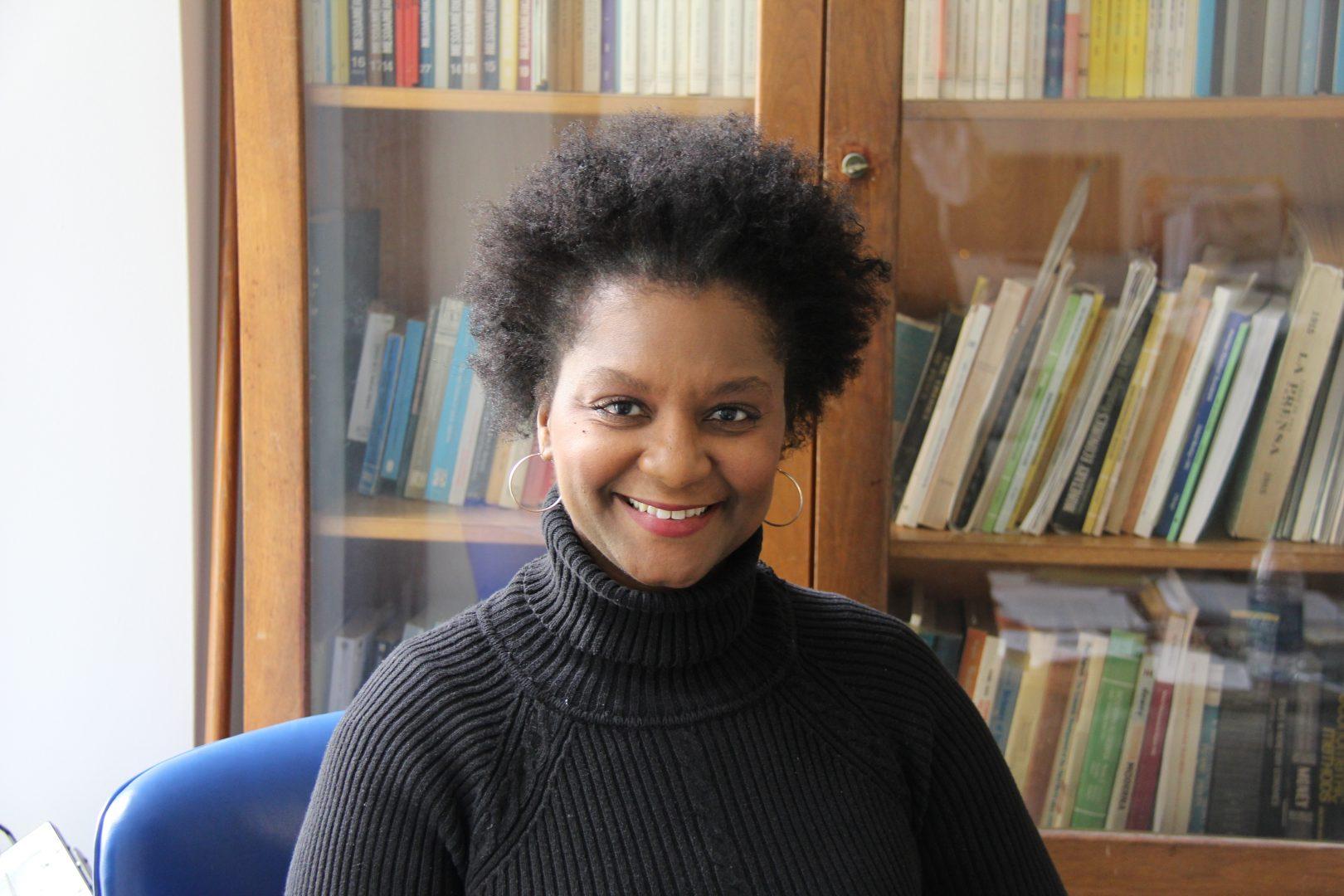Sandra Arnold is Searching for Respect for Forgotten Slaves
May 1, 2013

Deserted, unmarked, negated and forgotten, slave burial sites are typically discovered by accident during construction projects or by chance. Sandra Arnold, a student at the Fordham School of Professional and Continuing Studies (PCS) and the senior secretary for both the department of African and African American studies and the Latin American and Latino Studies Institute (LALSI), is concerned with the sacredness of these forgotten burial sites and their lack of memorialization.
Currently, Arnold is working on a database which documents the burial sites of both African-American slaves who died in slavery and African-American slaves who were emancipated. So far she has received close to a hundred submissions from across the United States. While the locations of many of the grave sites are still confidential, she did reveal that many sites have been found in New Jersey and as close as Hunt’s Point in the Bronx.
“I saw the value of the information that was provided for me and my family through the cemetery where my great grandfather was buried,” Arnold said. She continued, “It pieced together so much of our history.” While he died before Arnold was born, her great grandfather, who was an emancipated slave, has inspired her to help other African-Americans piece together their family lineage. Today, he rests in a marked slave grave site in Tennessee.
A common problem Arnold observes is that, “African-Americans hit a wall at slavery because people were sold off and there were very little records sometimes of where they were sold.”
It is this “forgetting” that Arnold does not want to continue. “The burial site of a person in every culture and in every walk of life is sacred,” Arnold said, “it should be the same for this population.”
While Arnold started the project independently, she acknowledges the help and inspiration Fordham has provided her with. “Fordham as a community has been extremely supportive and a wonderful space for me as a student to explore my project,” Arnold said. “There hasn’t been just one or two classes that have inspired me, it’s been the entire experience.”
Arnold has really enjoyed her American pluralism classes as they have taught her that, “fundamentally we are all the same and we all desire the same thing, which is to be cared for, loved and respected.”
Additionally, she has appreciated her course on the Civil War Era with Dr. Barry Goldberg, associate professor of history. In this class she researched what was on the forefront of emancipated slaves’ minds. Arnold discovered that they cared more about finding their lost family members than exercising their new rights as citizens. This was interesting to her as African-Americans are still searching for lost family members today. Goldberg said, “As the location of these sites builds up I think more and more people will be aware of how close slavery is to all of us. Some people may be shocked.”
Arnold has also found support from Isabelle Frank, Ph.D., Dean, PCS, as well as Cynthia Vich, Director of LALSI, who have provided her with advice for her project and her future as a student. “It’s a major project that is very valuable in terms of building historical memories in the U.S.,” Vich said. Vich has also helped publicize Arnold’s project in LALSI’s Boletín.
While there is no set date for the public release of the National Slave Burial Registry, Arnold hopes to publish it as soon as possible. Before it is released, she needs to fact check and make sure all of the information submitted to the database is legitimate.
Arnold does not want the buried slaves to be bulldozed over or accidentally exhumed any longer. “My sincere number one hope is that the enslaved are properly remembered. They are an entire population of people that deserve to be respected,” Arnold said.













Steven williams • Dec 20, 2020 at 6:38 pm
I am a amateur historian who has been working on a project off and on for twelve years.while studying for my undergraduate degree(Western Illinois University) I applied for a undergraduate research grant (Thomas E. Helms) I chose to research a little known local legend named Jack “the blackman” mccord,a slave bought from. Overton county Tennessee in 1832 to mcdonough county, Illinois. He is buried in a all white cemetery (Atkinson cemetery) I am interested in starting a database on enslaved african americans buried in white cemeteries in Illinois and around the country. can you please provide me with any information that could be helpful. Thank You, Steven Williams.